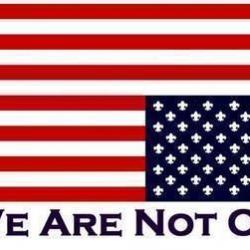
Living in what I have been calling The Tyranny of the Now is the most honest reality that I can describe. It is not a question of whether life is devastating; it is a question of how do we harness our deepest, most radical flourishing in the midst of living in the Tyranny of the Now, in the midst of ongoing devastation?
I commented to someone recently that our world is both burning and drowning. Our common home is also tied to our common humanity, and we must respond to the pressing social concerns that are threatening our flourishing.
Collective liberation is the thrust of the response to living in the Tyranny of the Now; it girds us in our vision for a deep humanity where we are united in light of our radical differences.
When we think about the theology of the now, what comes to mind is what Christians understand as life, which is connected to a divine source, or God. Because nowness is an immanent reality, we cannot continue to perpetuate a transcendence of God, who is the divine source of life. We must leverage the immanence of God, the nowness of God, the fact that God is most necessary today.
Responding to the Tyranny of the Now – with a theology of the now – demands attention to the ways in which life is always political. And, the entanglement that is life, the ways in which life is deeply entangled with a multitude of narratives, helps us lean into the a way of being in the world that is framed by becoming. As we respond to the Tyranny of the Now, becoming is a central part of our story. We must mobilize our stories of the now and harness a radical immanence, so that our theology of the now is aligned with our desire to create radical social change. Another way of saying this is that our theologies must have a primary relationship with our ethics. Our ideas about a divine source must relate to our lived practices. We must not compromise lest we perpetuate a logic of dominance that is killing us all.
Life is both theological and political, and life is happening now! Living in these moments is to live watching Black and Brown bodies systematically brutalized and executed by the State. Living in the now is also watching the ways in which our economic decisions and our ideologies of race and class impact our ecology thereby contributing to today’s ecological crisis. Important, too, is to note that the lives that are most impacted by the Tyranny of the Now are the minortized bodies whose lives are political and not disposable by the system that creates the conditions for there to be a precarious life for the marginalized.
We must address the politics of the now by mobilizing theology to have a primary orientation toward activism. We will not survive the Tyranny of the Now if we rely on an interior life that is not aligned with social practices. That is, our internalized ideas of faith and our lived practices of our values, or ethics, must find a way to be bound tightly together, aligned is deep ways, so that we can live a theology that is praxis oriented.
The Tyranny of the Now is one of our greatest social sins born of the misuse of power and an orientation to the logic of dominance which is the politics of the Empire. Responding to the Tyranny of the Now requires precision of thought and an ongoing commitment to resisting the prevailing system of domination that is today’s Empire. Responding to the Tyranny of the Now demands attention to the ways that theology must be activated by our stories, by our narrative as we seek to follow the ways of Jesus during moments that threaten our deepest, most radical flourishing. With the thrust of our response to the Tyranny of the Now being that of collective liberation, we must harness our theological imagination and seek to live a theology that is rooted in ongoing discernment and committed to the least of these.
Activist Theology is one attempt to be faithful in the small things, as Dr. Nancy Bedford taught me years ago in seminary. Activist Theology is a deeply confessional move in the face of the Tyranny of the Now, midwifed by the conviction that the politics of life must be framed by deep and ongoing commitments to justice for all.










